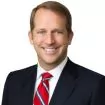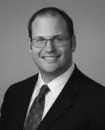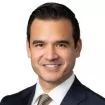In a trilogy of recent cases, the Texas Courts of Appeals have employed the "commercial speech" exception to exclude certain business claims from the scope of the Texas Citizen's Participation Act ("TCPA"). This trend will likely only accelerate now that the legislature has further reduced the TCPA's reach with additional statutory changes, restricting the protections regarding the right of association and the TCPA's application to trade secret cases and non-compete cases.
Background
The TCPA is an anti-SLAPP (Strategic Lawsuit Against Public Participation) statute allowing litigants to seek early dismissal of a lawsuit if the legal action is based on, or is in response to, a party's exercise of the right of free speech, right to petition, or right of association. Like other states, Texas enacted the TCPA to address concerns over the increasing use of lawsuits to chill the exercise of First Amendment rights.
As it applied prior to September 1, 2019, the TCPA required a movant to show by a preponderance of the evidence that the TCPA applied. If the movant was successful, the non-movant was then required to show by "clear and specific evidence" each element of its prima facie case or face mandatory dismissal, fees, and sanctions. If the non-movant was successful, then the movant could still obtain dismissal fees and sanctions if the movant could show by a preponderance of the evidence each essential element of a valid defense to the non-movant's claim.
On September 1, 2019, the revised TCPA came into effect. Among other changes, the legislature narrowed the definition of "exercise of the right of association" to activities related solely "to a governmental proceeding or a matter of public concern" and explicitly excluded employer-employee-based trade secret misappropriation and noncompete agreement violation claims. These changes have significantly narrowed the range of claims covered by the TCPA, which is likely to have a substantial effect on the TCPA's use by defendant former employees or defendant employers hiring their competitors' former employees.
In addition, neither the former nor current versions of the TCPA apply to a legal action brought against a person primarily engaged in the business of selling or leasing goods or services, if the complained-of statement or conduct arose out of the sale of goods in which the intended audience is an actual or potential buyer. This is commonly referred to as the "commercial speech" exception. The following three cases demonstrate how this exception applied prior to the recent amendments and will likely be applied in future post-amendment cases, even as additional restrictions to the TCPA come on line.
Case Facts: Rouzier
Appellant Neal Rouzier, M.D. ("Dr. Rouzier"), performed work on behalf of Appellee BioTE Medical, LLC ("BioTE") as a faculty member who trained doctors and their staff on BioTE's hormone replacement therapy products, systems, and software. BioTE provided Dr. Rouzier with its confidential and proprietary information during the time he performed work on behalf of BioTE.
Sometime in 2018, Dr. Rouzier stopped performing work for BioTE and began working in the same capacity at EvexiPEL, a BioTE competitor, in the same capacity in which he worked for BioTE. BioTE subsequently filed suit alleging, amongst other claims, a misappropriation of trade secrets claim, and alleging that Dr. Rouzier and EvexiPEL were using BioTE's stolen intellectual property to compete with BioTE.
Dr. Rouzier responded to the lawsuit with a TCPA motion to dismiss. The trial court denied the motion and Dr. Rouzier appealed, arguing, in part, that BioTE had not demonstrated that the commercial speech exception applied to Dr. Rouzier's motion to dismiss.
The Ruling: Rouzier
On November 22, 2019, the Dallas Court of Appeals affirmed the trial court's denial of Dr. Rouzier's TCPA motion to dismiss and found, in relevant part, that BioTE established the application of the commercial speech exception. In doing so, the appellate court noted that Dr. Rouzier's role at BioTE had a sales component to it. He not only trained doctors and their staff on the hormone therapy system, but he also provided information on how to answer patient questions to market the hormone therapy system. Moreover, after completing the training, the doctors would sign up to be providers of the BioTE system. In addition to doctors, Dr. Rouzier also trained BioTE liaisons on how to answer doctors' questions to sell the BioTE system.
BioTE alleged that Dr. Rouzier performed this exact same role when he started working for EvexiPEL, including trainings that resulted in doctors signing up as EvexiPEL providers. BioTE alleged that Dr. Rouzier used stolen information to usurp BioTE's business opportunities with new physicians and to convince existing BioTE physicians to migrate their business to EvexiPEL. In response, Dr. Rouzier argued that he was only a lecturer, but the appellate court was not convinced and found that BioTE had demonstrated that the lectures were intended to market products to physicians.
Dr. Rouzier also attempted to evade the application of the commercial speech exception by claiming that he was not "primarily engaged" in marketing EvexiPEL's system because he also worked part-time at a medical clinic. The appellate court was also not persuaded by this argument and found that there was no evidence that Dr. Rouzier's part-time work was his primary occupation or that his work in that job was unrelated to his work for EvexiPEL. Moreover, BioTE's allegations that Dr. Rouzier communicated with physicians for the purpose of promoting the use of EvexiPEL's system was alone sufficient to demonstrate that Dr. Rouzier's communications were made while he was primarily engaged in the business of selling goods or services.
In addition, Dr. Rouzier argued that BioTE failed to demonstrate his communications were made to his own actual or potential customers because Dr. Rouzier was an independent contractor and was not trying to promote his own practice or sign up customers for himself. In rejecting this argument, the Court cited to a prior BioTE case, Forget About It, Inc. v. BioTE Med., LLC, No. 05-18-01290-CV, 2019 WL 3798180 (Tex. App.—Dallas Aug. 13, 2019), pet. filed). In Forget About It, the Court rejected an argument that the commercial speech exception did not apply to an independent contractor's communications. To the extent an independent contractor's communications allegedly promoted the use of a product made by the company for which he worked, the commercial speech exception can apply.
Case Facts: Hieber
On November 14, 2019, the Houston Fourteenth Court of Appeals held that a former employer's breach of contract claim against a former employee was subject to the TCPA's commercial speech exception. The former employer, Percheron, hired the defendant employee, Jeffrey Hieber, in 2007. As Hieber elevated through the ranks, he eventually signed an agreement entitling him to equity in Percheron, but which contained restrictive covenants that prevented his post-employment competition with Percheron or solicitation of Percheron's clients. Hieber's last position with Percheron was Vice President of Business Development. In that role, Hieber was responsible for developing new business relationships with companies and individuals and representing Percheron at industry meetings and social functions.
Approximately three years after Percheron promoted him to Vice President, Hieber submitted his resignation. At the time of his resignation, Hieber represented that he was not leaving Percheron to join a competitor. This was untrue. Hieber had already accepted employment with one of Percheron's competitors, LJA Surveying, Inc. ("LJA").
Percheron learned of Hieber's duplicity several weeks after he started at LJA because Hieber was representing LJA at the same industry meetings at which he previously represented Percheron. Percheron also learned that Hieber was soliciting a current Percheron customer who ultimately awarded a new project to LJA instead of Percheron.
After learning of this, Percheron filed suit against Hieber for breach of contract, alleging that he violated his non-compete and non-solicitation restrictive covenants. Hieber responded by filing a motion to dismiss under the TCPA. The trial court denied Hieber's motion without stating its reasoning and Hieber filed an interlocutory appeal.
The Ruling: Hieber
In affirming the trial court's denial of the TCPA motion, the Fourteenth Court of Appeals found that the application of the commercial speech exception was dispositive as to Hieber's motion. In doing so, the appellate court found that Percheron met all four of the elements for the commercial speech exception.
First, Percheron had to demonstrate that Hieber was primarily engaged in the business of selling or leasing goods or services. Percheron satisfied this element by pleading that Hieber was responsible for selling competitive services while at LJA. Hieber countered with an argument that he did not actually sell anything, he was only an employee of LJA. The appellate court rejected this argument because the commercial speech exception does not require a completed transaction and it can apply even if the movant is an employee instead of the entity formally selling the goods or services.
Second, Percheron had to demonstrate that its claim arose from either a statement that Hieber made in his capacity as a seller of competitive services, or conduct in which Hieber engaged as a seller of those competitive services. The appellate court found that Percheron's pleadings established both the statement and conduct components of this element. Percheron met the conduct component by alleging that Hieber was in violation of his non-compete by working at LJA. Percheron similarly met the statement component by alleging that Hieber solicited Percheron's existing customer.
Hieber attempted to counter, claiming that the allegations against him did not arise due to statements that he made in the seller capacity. The appellate court found this argument was "plainly wrong." By pleading a breach of the non-solicitation provisions, Percheron demonstrated that its claim arose from statements that Hieber made while selling competitive goods and services.
Third, Percheron had to demonstrate that the statement or conduct at issue arose out of a commercial transaction involving the kind of services that Percheron and LJA provide. The appellate court found that Percheron satisfied this element with respect to both the conduct and statement claim. The conduct—a breach of the non-compete—and statement—solicitation of a Percheron client—both arose out of a commercial transaction regarding the sale of goods that Percheron and LJA offered.
Fourth, Percheron had to demonstrate that the intended audience of Hieber's statements and conduct was an actual or potential customer for the type of services that Hieber provides. The appellate court found that Percheron satisfied this requirement because it alleged that Hieber marketed the same type of services that he offered while at Percheron to an existing customer of Percheron on behalf of LJA.
Given that Percheron met all four elements, the appellate court concluded that the commercial speech exception applied and affirmed the trial court's denial of Hieber's TCPA motion to dismiss.
Case Facts: Goldberg
On August 22, 2019, the Court of Appeals for the Fifth District of Texas at Dallas held, inter alia, that the TCPA did not apply to former employees' communications with actual or potential purchasers of their new employers' products or services under the commercial speech exception.
Kenneth Goldberg was Manager of Gold Metal Recyclers ("Gold Metal"), a scrap-metal recycling company and an affiliate of EMR (USA Holdings) Inc. As part of his employment agreement with Gold Metal, Goldberg entered into a noncompete agreement with EMR (USA Holdings) Inc. and its affiliates, including Gold Metal (collectively, "EMR"), in which he agreed not to compete with or EMR for a specified time period after termination or ever use EMR's confidential information. After the specified time period after leaving EMR had expired, Goldberg opened a scrap metal recycling business, Geomet Recycling, LLC ("Geomet") and hired several of EMR's employees. EMR then filed claims against Goldberg, Geomet, and EMR's former employees who left to work for Geomet (collectively, "Defendants") for, among other claims, violations of the Texas Uniform Trade Secrets Act ("TUTSA"), breach of contract, breach of fiduciary duty, and tortious interference with a contract. Defendants moved to dismiss all claims under the TCPA based on their assertion that EMR's claims were based on, related to, or were in response to their rights of association or free speech. After the trial court denied Defendants' motion to dismiss without reason, the appellate court affirmed in part and reversed in part.
The Ruling: Goldberg
Based on the TCPA as it existed prior to September 1, 2019, as a threshold issue, the appellate court appeared to impliedly affirm the trial court's denial of Defendants' motion to dismiss to the extent the denial was based on application of the TCPA's commercial speech exception to Defendants' communications with actual or potential purchasers of Defendants' products. The appellate court found that Defendants were primarily engaged in the business of selling goods because a purpose of their business was to generate a profit by recycling scrap metal, despite Defendants' argument that they spent less than a majority of their time selling goods and that they should therefore not be considered primarily engaged in the business of selling goods. The appellate court also found that Defendants had engaged in the conduct on which the legal action was based in their capacity as sellers of such goods, that Defendants' statements arose out of commercial transactions involving such goods, and that the intended audience of the statements or conduct were actual or potential buyers of Defendants' goods. Thus, the court held that Defendants' communications with actual or potential purchasers of Defendants' products or services qualified for the commercial speech exception.
The appellate court also affirmed the trial court's denial of Defendants' motion to dismiss Plaintiffs' claims for TUTSA violations, breach of fiduciary duty, and tortious interference claims to the extent the denial was based on the company Defendants' communications with Plaintiffs' employees in attempts to hire the employees. The appellate court found that Defendants had failed to show by a preponderance of the evidence that such communications included public participation, as required by the appellate court's interpretation of "exercise of the right of association" under the TCPA.
Analysis
Through these trilogy of cases, the Texas Courts of Appeals have begun to significantly pull back the application of the TCPA, in part, through the use of the commercial speech exception. It is now clear that the TCPA does not likely apply to most of defendant's acts or conduct that are focused on competing with a former employer or soliciting a former employer's clients. Moreover, defendants are less likely able to circumvent the application of this exception by arguing that they were independent contractors, did not actually sell the product or services in question, did not communicate with the potential clients with the intent to engage in a commercial transaction, and were not "primarily" engaged in sales efforts. Instead, so long as the plaintiff employer alleges wrongful competition—either through the violation of a restrictive covenant or through trade secrets misappropriation—the plaintiff has a good chance of meeting its burden to demonstrate that the commercial speech exception applies.
In addition to these rulings by the Texas Courts of Appeals, the Texas legislature's 2019 amendments to the TCPA further eroded the TCPA's once-robust protections by specifically excluding any trade secrets misappropriation claims brought under Texas Uniform Trade Secrest Act in the employer/employee context as well as claims brought to enforce covenants not to compete. The legislature further limited the definition of right of association to those matters related to a governmental proceeding or a matter of public concern.1 These changes in many ways mirror what the Courts above have sought to accomplish through the broad interpretation of the commercial speech exception. Meanwhile, the legislature has not scaled back the commercial speech exception, meaning the pre-amendment decisions such as those above will likely govern in similar circumstances in cases filed after September 1, 2019.
With these legislative and judicial changes, it appears that that the halcyon days for the TCPA are over. That is, narrowed definitions of application and broad interpretations of the commercial speech exception likely mean that litigators will find the TCPA's application largely restricted in the realm of general commercial litigation. The statute may no longer be employed as a general catch-all motion to dismiss (with the serious consequences of fees and sanctions), as some litigators have tried to do. Instead, the statute is likely to be more narrowly construed to address those cases traditionally within the aegis of anti-SLAPP statutes, i.e., those that seek to infringe on the exercise of more narrowly-defined personal liberties and constitutional rights.
Footnote
1 It is important to note that the definition of a "matter of public concern" has also been narrowed to relate only to "means a statement or activity regarding: (A) a public official, public figure, or other person who has drawn substantial public attention due to the person's official acts, fame, notoriety, or celebrity; (B) a matter of political, social, or other interest to the community; or (C) a subject of concern to the public."
The content of this article is intended to provide a general guide to the subject matter. Specialist advice should be sought about your specific circumstances.



